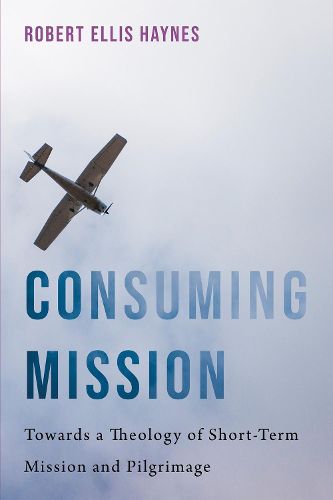Readings Newsletter
Become a Readings Member to make your shopping experience even easier.
Sign in or sign up for free!
You’re not far away from qualifying for FREE standard shipping within Australia
You’ve qualified for FREE standard shipping within Australia
The cart is loading…






This title is printed to order. This book may have been self-published. If so, we cannot guarantee the quality of the content. In the main most books will have gone through the editing process however some may not. We therefore suggest that you be aware of this before ordering this book. If in doubt check either the author or publisher’s details as we are unable to accept any returns unless they are faulty. Please contact us if you have any questions.
Short-term mission trips are commonplace in American church life. Yet their growth and practice have largely been divorced from theological education, seminary training, and mission studies. Consuming Mission takes important steps in offering a theological assessment of the practice of STM and tools for subsequent mission training. Using relevant academic studies and original focus-group interviews, Haynes offers important insights into this ubiquitous practice. While carefully examining the biblical and historical foundations for mission, Consuming Mission engages more contemporary movements like the Missio Dei, Fresh Expressions, the Emergent Church, and Third-Wave Mission movements that have helped shape mission. The unique role of United Methodist mission is illustrated through its historical roots and contemporary expression in the ubiquitous STM movement in the United States. Haynes uses original field research data to gather the implicit and explicit theologies of lay and clergy participants. Cultural influences are significantly influencing STM participants as they use their time, money, sacrifice, and service, applied in the name of mission, to purchase a personal growth experience commonly sought by pilgrims. The resulting tensions from mixing mission, pilgrimage, and tourism creates are explored. Haynes offers important steps to move the practice away from using mission for personal edification.
$9.00 standard shipping within Australia
FREE standard shipping within Australia for orders over $100.00
Express & International shipping calculated at checkout
This title is printed to order. This book may have been self-published. If so, we cannot guarantee the quality of the content. In the main most books will have gone through the editing process however some may not. We therefore suggest that you be aware of this before ordering this book. If in doubt check either the author or publisher’s details as we are unable to accept any returns unless they are faulty. Please contact us if you have any questions.
Short-term mission trips are commonplace in American church life. Yet their growth and practice have largely been divorced from theological education, seminary training, and mission studies. Consuming Mission takes important steps in offering a theological assessment of the practice of STM and tools for subsequent mission training. Using relevant academic studies and original focus-group interviews, Haynes offers important insights into this ubiquitous practice. While carefully examining the biblical and historical foundations for mission, Consuming Mission engages more contemporary movements like the Missio Dei, Fresh Expressions, the Emergent Church, and Third-Wave Mission movements that have helped shape mission. The unique role of United Methodist mission is illustrated through its historical roots and contemporary expression in the ubiquitous STM movement in the United States. Haynes uses original field research data to gather the implicit and explicit theologies of lay and clergy participants. Cultural influences are significantly influencing STM participants as they use their time, money, sacrifice, and service, applied in the name of mission, to purchase a personal growth experience commonly sought by pilgrims. The resulting tensions from mixing mission, pilgrimage, and tourism creates are explored. Haynes offers important steps to move the practice away from using mission for personal edification.